Creative Activities
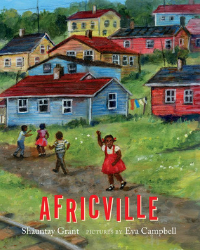 |
Shauntay GrantAfricville (Groundwood Books, 2018), Illustrated by Eva Campbell Finalist for the Governor General's Literary Award, Young People's Literature - Illustrated Books When a young girl visits the site of Africville, in Halifax, Nova Scotia, the stories sheâs heard from her family come to mind. She imagines what the community was once like âthe brightly painted houses nestled into the hillside, the field where boys played football, the pond where all the kids went rafting, the bountiful fishing, the huge bonfires. Africville was a vibrant Black community for more than 150 years. But even though its residents paid municipal taxes, they lived without running water, sewers, paved roads and police, fire-truck and ambulance services. In the 1960s, city officials decided to demolish the community, moving people out in city dump trucks and relocating them in public housing. Today, Africville has been replaced by a park, where former residents and their families gather each summer to remember their community. |
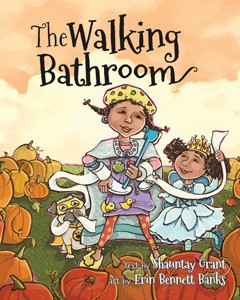 |
Shauntay GrantThe Walking Bathroom (Nimbus Publishing Inc. and Vagrant Press, 2017) Itâs Halloween and Amayah doesnât have a costume to wear to school. She dressed as a ghost for the last three years in a row, witches are overdone, and fairies are not her style. She wants to be something different, something creative, something no one else in the world has ever been in the history of Halloween. A sweet story of standing out and fitting in,ÌęThe Walking BathroomÌęis the newest book from award-winning author and spoken-word poet Shauntay Grant (Up Home). With fun, vibrant artwork from Erin Bennett Banks (Change of Heart), this imaginative tale is bound to inspire some unique costumes and become a Halloween favourite! |
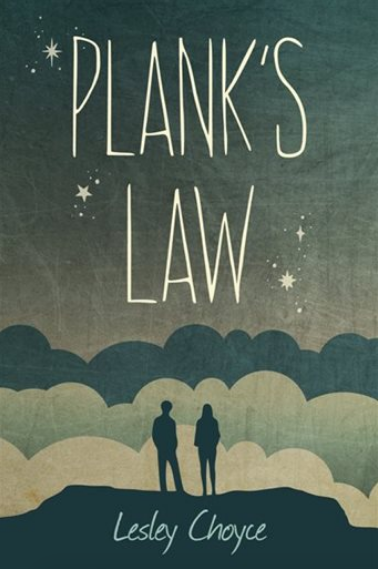 |
Lesley ChoycePlank's Law (Orca Book Publishers, 2017) Trevor has known since he was ten years old that he has Huntington's disease, but at sixteen he is informed that he has one year to live. One day while he's trying to figure stuff out, an old man named Plank finds him standing at a cliff by the ocean. It's the beginning of an odd but intriguing relationship. Both Trevor and Plank decide to live by Plank's Law, which is "just live." This means Trevor has to act on the things on his bucket list, like hanging out with real penguins, star in a science fiction movie and actually talk to Saraâthe girl at the hospital who smiles at him. |
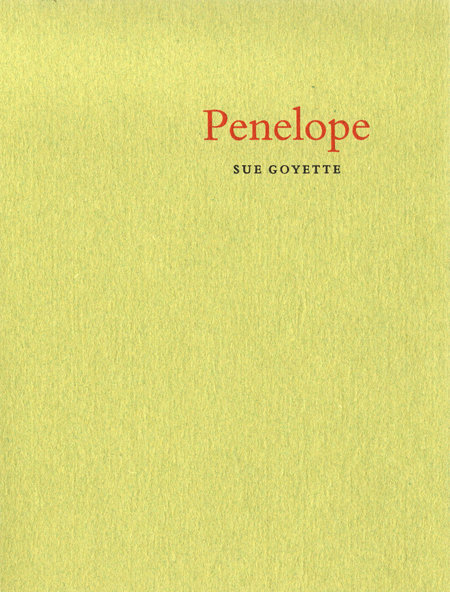 |
Sue GoyettePenelopeÌę(Gaspereau Press, 2017) Penelope waits for Odysseus's return, so the story goes, but literary tradition tells us little about this act of waiting, an act every bit as epic as her husband's exploits. In this suite of poems, Sue Goyette steps into the disorienting world of Penelope's domestic upheaval, a world populated by a swarm of opportunistic suitors, a tempestuous teenage son, a goddess and sundry sentient objects and talking creatures. Written with a wit and a penchant for magic realism reminiscent of bothÌęOceanÌęČčČÔ»ćÌęThe Brief Reincarnation of a Girl, Goyette'sÌęPenelopeÌęchronicles the human qualities of waiting--grief, doubt, depression and anger, but also determination, strength and grace--as Penelope breaks her long silence and exclaims her own story. |
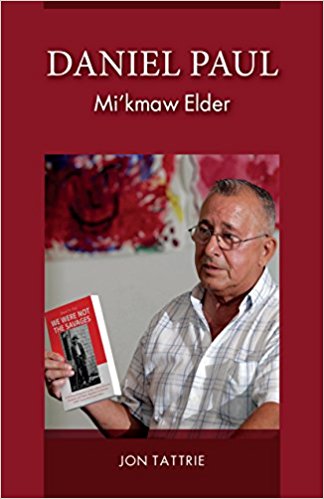 |
Jon TattrieDaniel Paul: Mi'kmaq Elder (Pottersfield Press, 2017) Born in a log cabin during a raging blizzard on Indian Brook Reserve in 1938, Miâkmaw elder Daniel N. Paul rose to the top of a Canadian society that denied his peopleâs civilization.ÌęWhen he was named to the Order of Canada, his citation called him a âpowerful and passionate advocate for social justice and the eradication of racial discrimination.â His landmark book We Were Not the Savages exposed the brutalities of the collision between European and Native American civilizations from a Miâkmaq perspective.Ìę Now, for the first time, here is the full story of his personal journey of transformation, a story that will inspire Canadians to recognize and respect their First Nations as equal and enlightened civilizations. |
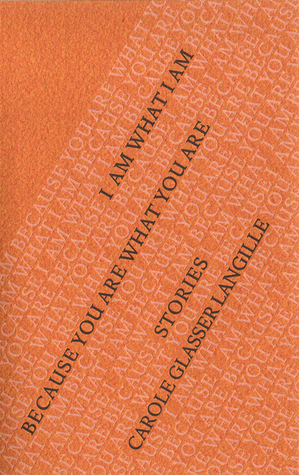 |
Carole Glasser LangilleI Am What I Am Because You Are What You Are (Gaspereau Press, 2016) A collection of linked stories can closely approximate everyday experience, where repeat, intimate encounters might gradually uncover the private, inner lives of others, and the accumulated fragments of incidents and revelations might slowly unveil the context for the choices people have made. Through the authenticity and subtle interconnections of her characters, Carole Glasser Langille explores the nature of our relationships; what we conceal, what we revealâand at what cost. |
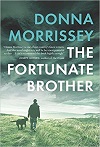 |
Donna MorrisseyThe Fortunate BrotherÌę(Viking, 2016) Winner of the The Thomas Raddall Award for best fiction in Atlantic Canada, 2017. Read Donna's article on Thomas Raddall's legacyÌę. |
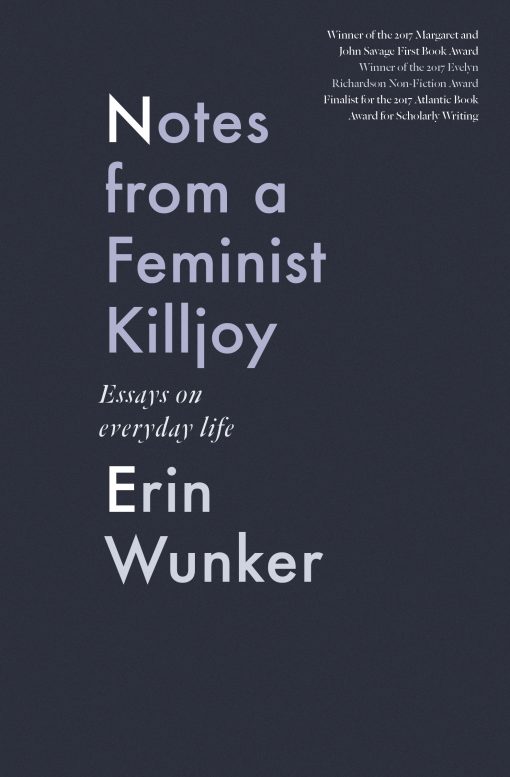 |
Erin WunkerNotes from a Feminist Killjoy: Essays on Everyday Life (2016, Bookthug) Winner of the Atlantic Book Awards 2017, Margaret and John Savage First Book Award Following in the tradition of Sara Ahmed (the originator of the concept âfeminist killjoyâ), Wunker brings memoir, theory, literary criticism, pop culture, and feminist thinking together in this collection of essays that take up Ahmedâs project as a multi-faceted lens through which to read the world from a feminist point of view. Neither totemic nor complete, the nonfiction essays that make up Notes from a Feminist Killjoy: Essays on Everyday Life attempt to think publicly about why we need feminism, and especially why we need the figure of the feminist killjoy, now. From the complicated practices of being a mother and a feminist, to building friendship amongst women as a community-building and community-sustaining project, to writing that addresses rape culture from the Canadian context and beyond, Notes from a Feminist Killjoy: Essays on Everyday Life invites the reader into a conversation about gender, feminism, and living in our inequitable world. |
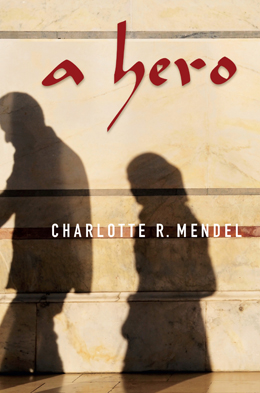 |
Charlotte MendelA Hero (Inanna Publications, 2015) Finalist, 2016 William Saroyan International Prize for Writing (Fiction) This novel delves into the complicated question of what constitutes a hero. Set in the turbulent background of the Arab Spring, each chapter in A Hero is told from the perspective of different members of one family. The conservative patriarch Mohammed believes in peace, education and prosperity, all of which the current dictatorship has given him. He scathingly attacks his young, idealistic brother-in-law Ahmed, who attends revolutionary protests at every opportunity. âDo you think you are a hero?â Mohammed sneers. âThere are no heroes in this war.â Ahmed quietly replies that such situations create heroes, like the doctors setting up makeshift hospitals for the protestors despite the fact that they have no political affiliation, terrified that they themselves would be caught and tortured. Mohammed is consumed with anxiety that his home will be invaded and his family destroyed by the blind resistance of the protestors, who donât seem to realize that the fall of the current dictator will result in chaos and probable massacre. |
 |
Lesley ChoyceInto the Wasteland (Red Deer Press, 2014) Winner of the Ann Connor Brimer Award for Childrenâs Literature, 2017 Atlantic Book Awards. "Dixon Carter wants to share his life manifesto. Don't worry â there won't be any violence. Dixon doesn't believe in violence. But Dixon is seeing things differently. He has gone off his meds â the drugs deaden him to the world. He is writing a daily journal from the point he stopped the meds. There are times he is angry with the world and everyone in it. But then there are the times where he can see all the beauty, just like the Romantic poets. His girlfriend Sylvia and best friend Zeke are trying to help him on his journey. But when the real world throws a tragic event in Dixon's path his struggles to save himself become darker and much more difficult and dangerous |
 |
Sue Goyette
|
 |
Geordie Miller
|
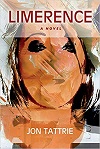 |
Jon TattrieLimerence (Pottersfield Press, 2015) Can a man have it all? The warmth of a solid family and the challenges of a fruitful career? These questions lie at the heart of Limerence, a fun novel exploring the lives of two people seeking very different ways to be men. Oneâs a stay-at-home dad, the other a freewheeling libertine. Both struggle with addictions to limerence, that Leonard Cohen longing for something new that drives so many men to leave behind whatâs good in pursuit of what seems better. A car crash in southern Manitoba flings lives apart like planets ejected from the solar system. A man with no future staggers dazed from the wreckage and vanishes. A man with no past arrives in Halifax and creates a new life. Cain Cohen denies he ever was Sam Stiller, but the past is catching up to his present. People who knew Sam insist he is the same person as Cain, but he rejects them, repeatedly insisting heâs not Stiller. Is he right? Or is he deliberately trying to shake off his old identity and assume a new one? As the mystery unfolds, the novel probes deeper questions about manhood. Old ideas of how to be a man celebrate the stoic breadwinning father, but theyâve fallen out of our culture. Newer ideas, like taking time off to raise your children, barely make a dent. Men are left to explore the unmapped terrain alone, shaping the future without anyone noticing. Drawing wisdom from the great Canadian poet Leonard Cohen, William Shakespeare and Steve Perry, Limerence dives deep into the new world of new men and asks: What does it mean to be a man? |
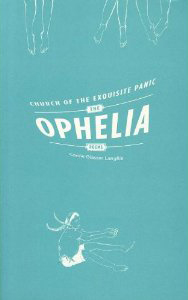 |
Carole Glasser LangilleChurch of the Exquisite Panic: The Ophelia Poems (Pedlar Press 2012) "Using the quietly powerful and tragic character Ophelia from Shakespeareâs Hamlet as a touchstone for a sprawling collection of new poems, established poet Carole Glasser Langille has given readers her most refined and vital work to date."â The Coast |
Ìę
Ìę Ìę |
Rebecca BabcockEvery Second Weekend (Blaurock Press, 2011) Nine linked and overlapping narratives in the voices of Liz and Katie, mother and daughter. We come to know Katieâs brother Michael, her feckless father, her half-brother Kent, in a family saga of tragedy and disappointment, of growing estrangement and isolation. As though mirroring this inner emotional landscape, the setting is a Canada of far distances, stunted forests, remote cabins, transitory accommodations. Both Katie and Liz must finally make choices about commitment, escape, desire and dignity. There are no easy answers in this austere tale, but a sense of the values of maturity and intelligence affirmed. |


